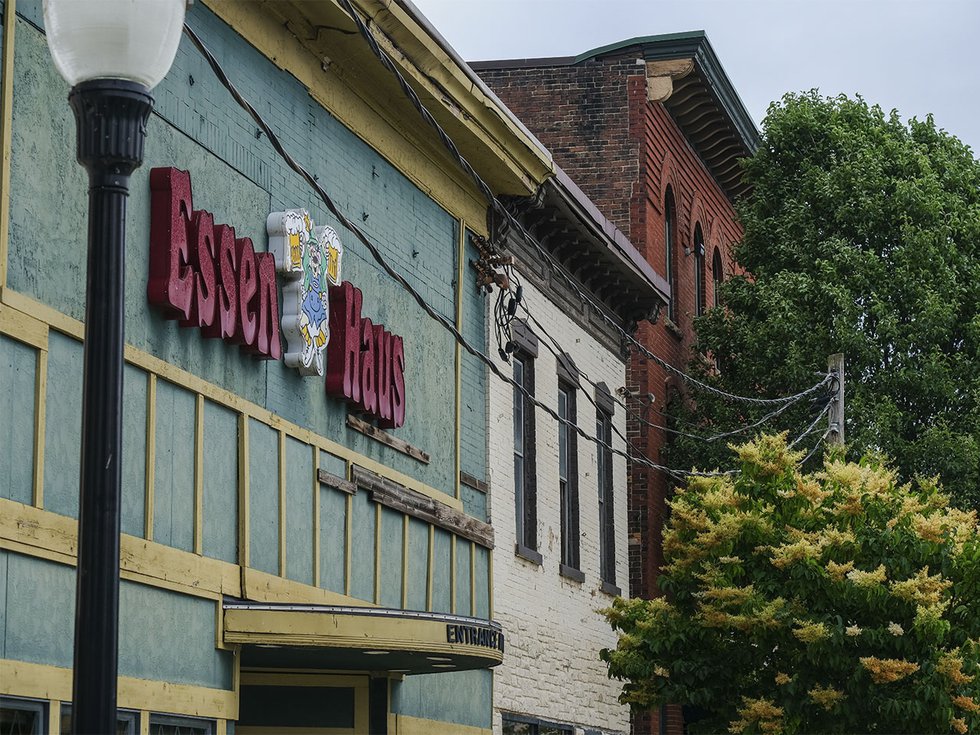Housing shortage drives Madison city council approval of new projects – Isthmus


Facing a citywide housing crisis, the Madison city council voted Tuesday night to approve four major housing developments during a marathon meeting lasting nearly eight hours.
Projects approved include an apartment complex on Old Sauk Road, an apartment and hotel proposal near the Capitol, a “tiny village” proposal aiming to house homeless people and a mixed-use proposal on currently unused farmland on the city’s east side.
The proposals add housing in areas developers say were underutilized. And they come as Madison, Wisconsin’s fastest growing city, confronts an ongoing housing shortage, referenced throughout the night by alders in their remarks. The city’s annual rent increases are among the highest in the nation.
A group of residents who testified against the three-story, 138-unit apartment building from Stone House Development at 6610 Old Sauk Road stuck it out until 1:55 a.m. when the final tally — 15 votes in favor, four votes opposed — was read, clearing the way for the proposal to go forward. The residents left quickly after.
Conversation around the development has been heated. On June 5, Friends of Old Sauk, a group opposed to the proposal, delivered a petition signed by 261 residents to city officials arguing that the proposal posed issues of traffic congestion and stormwater drainage; they also cited an issue of size. But residents also turned out Tuesday night in support, arguing that the proposed housing would help tackle Madison’s housing crisis. In all, 88 people registered in support and 63 registered against, according to Dylan Brogan, city communications director. Testimony lasted nearly two-and-a-half hours.
“Hundreds of District 19 and citywide residents feel like their concerns are not heard in this process,” Lynn Green, a Madison resident and the former director of Dane County’s human services department, said at the hearing. Green criticized name-calling, noting that those opposing the proposal have been called NIMBYs (not in my backyard) and “white entitled, privileged people,” labels she disagrees with. She said such labels deter “constructive conversation.”
The group does not oppose rezoning, Green added, but rather wishes to see “appropriate rezoning.”
Many who spoke in support of the resolution referenced cost-of-living increases that increasingly price people out of Madison.
“I have no idea how even blue collar families with children and medical expenses could possibly make ends meet with the increasing cost of living. I suspect the reality is they can’t,” Maksim Mikityanskiy, a software engineer, told the council. “Madison urgently needs more housing.”
Helen Bradbury, co-founder and president of Stone House Development, said the proposed site is attractive for many reasons, but particularly because it is “rare to find a 3.7-acre site this close to downtown.” The area is currently home to a duplex, two single family homes and a barn, all of which will be razed in the redevelopment.
Before alders voted on the proposal, Ald. Barbara Harrington-McKinney said she wanted to provide more time for community members and city officials to deliberate and meet. She put forth a motion to refer the resolution to a July 2 city council meeting, but it failed on a 15-4 vote.
Residents who spoke in opposition to the development said the proposed building would be significantly different from other properties in the area and could increase risks from stormwater drainage and flooding. One neighborhood group in opposition to the proposal hired a civil engineer, Chuck Nahn, to study the proposal; Nahn told the Wisconsin State Journal in June that flooding risk should be further considered “before a decision to change the zoning and demolish existing structures is made.”
Stone House rebuked those claims, with Bradbury saying its proposal would potentially decrease flooding risks in the area, as the lot is not currently managed by a property manager, who would keep an eye on flooding risks. Wade Wyse, project manager at Wyser Engineering, the engineering firm that prepared the proposal’s stormwater management plan, said that the developer has already gone beyond the typical stormwater planning process for a project of its type.
Greg Fries, deputy city engineer, told the council that “it is a little bit rare that a group would hire third party engineers who will be able to write comments ahead of time.” But, he added, “Certainly we will work through those comments and we take them seriously.”
Alds. Juliana Bennett and Marsha Rummel, whose districts cover areas in downtown Madison, said that residents can still work with city officials to resolve stormwater concerns.
“Here is my alder view from downtown: you got a really good developer. Everyone should hope that they could get Stone House to do a project in their district,” Rummel said.
Other residents argued the development would not be dense enough to address housing shortage concerns. Ald. Regina Vidaver asked Bradbury why the project could not incorporate “missing middle” housing — medium-density housing like duplexes — that would bolster the proposal. Bradbury said that incorporating a “missing middle” of such a scale on the site would be financially infeasible in the current housing market.
The council also unanimously approved a proposal to redevelop the lot currently occupied by Essen Haus, a German restaurant on 514 E Wilson St., into an eight-story 178 unit apartment building and a six-story, 100 room hotel.
Attempts to develop on the lot have had a “long history,” Brian Munson, principal designer at design firm Vandewalle and Associates, told the council. Developers have tried to redevelop the lots currently occupied by Essen Haus for over two decades — Lance McGrath, owner of McGrath Property Group, withdrew the most recent bid in July 2019, and proposals in 2004 and 2005 met challenges from residents and city officials before falling through.
Unlike prior proposals, Eau Claire-based developer JCap Real Estate’s plan includes two buildings, not one. The developer will build an eight-story, 178-unit multifamily apartment building and a six-story, 100-room hotel on the lot.
The two properties will be connected by what JCap terms a “living street,” a pedestrian-friendly walkway with low speed limits and reduced vehicle traffic. The development will preserve the historic Hotel Ruby Marie and maintain the area’s historic value, according to a May 13, 2024 letter of intent.
“The resulting design creates three distinct buildings and overall massing that reinforces the transitions between the existing First Settlement Neighborhood and the adjoining Third Lake Ridge neighborhood,” the letter reads.
Though the area has a six-story limit, a city ordinance enacted in March 2023 allows buildings with affordable units to exceed maximum story limits if they remain under the area’s maximum height limit. The apartment complex will designate 39 affordable housing units for households earning up to 60% of the area’s median income, the maximum percentage deemed “affordable” under the ordinance.
Ald. MGR Govindarajan tells Isthmus he feels the height-limit exceptions have helped incentivize developers to include affordable housing. He notes that the city’s height restriction — which exists within a mile of the Capitol — largely applies to some of the most expensive lots in the city. The affordable unit exception allows developers to maximize their return on investment through denser projects, Govindarajan says, particularly because state building codes mandate more expensive, durable construction materials for buildings above five stories.
Alders also approved rezoning the area near Voit Farm, a 67-acre upper-east side property located at 3450 Milwaukee St., for a 1,100 mixed income residential unit proposal from Stone House and Threshold Development, and a preliminary plat for 3420-3614 Milwaukee St. Initial construction is slated for July 2025, with development expected to span over the next five to 10 years.
The farmland is largely undeveloped, bordered by residential neighborhoods and a highway. Up to 20% of the proposed 1,100 units will potentially be affordable, according to a May 13, 2024 land use application letter. “The proposed plan offers the unique opportunity to create diverse housing woven into a publicly accessible, high quality restored landscape,” the letter reads.
The council also unanimously approved a rezoning proposal for a 22-unit tiny house village, which would prioritize housing homeless individuals, from nonprofit group Occupy Madison. The development on South Stoughton Road will be the third tiny house village Occupy Madison has constructed.
Organizers with Occupy Madison told the council these tiny homes provide a needed alternative from homeless shelters and give residents needed support. But some residents who live near the proposed site voiced concern that there would be issues from drug use by residents of the village.
Alds. Martinez Rutherford and Sabrina Madison criticized what they see as generalizations of homeless people.
“If that ever happened to me or if it ever happened to you, I would pray to every god that I could think of that people wouldn’t treat you like the emails that we have received,” Martinez-Rutherford said.
“When people are housed, they have a higher chance of being in community,” she added. “When people are housed, it gives them a chance to seek gainful employment.”
[Editor’s note: This article was updated to clarify votes on the Voit Farm rezoning and plat.]

